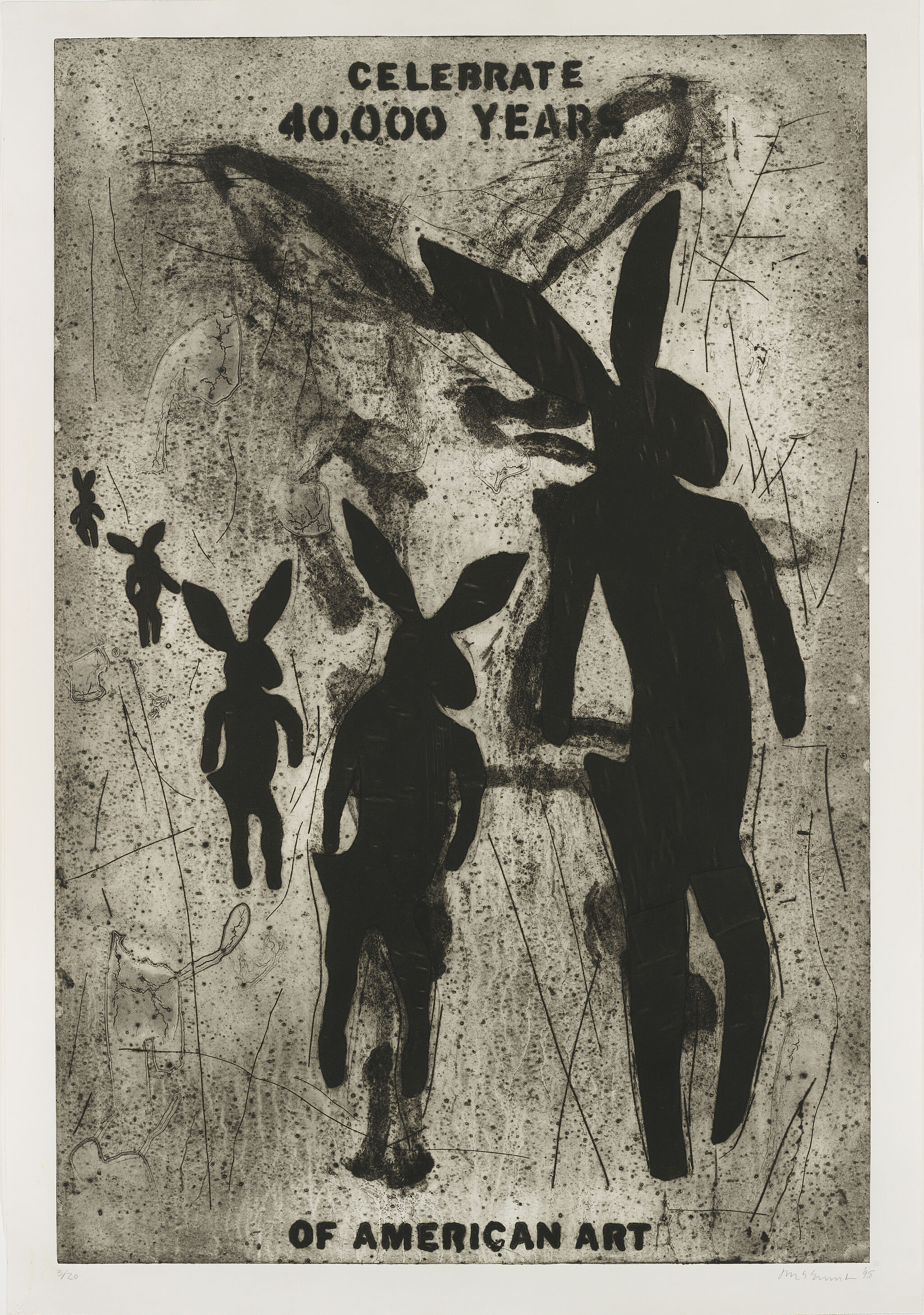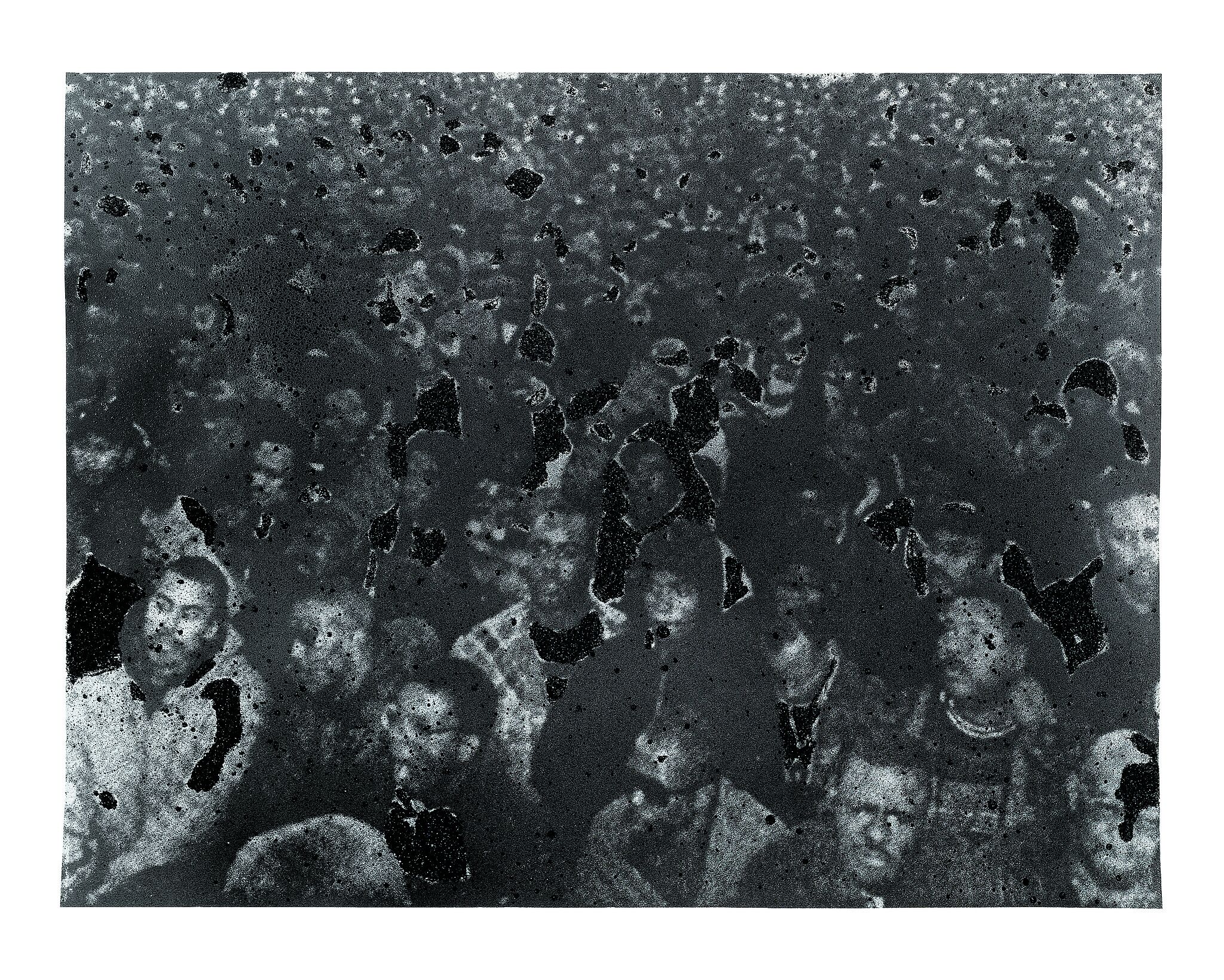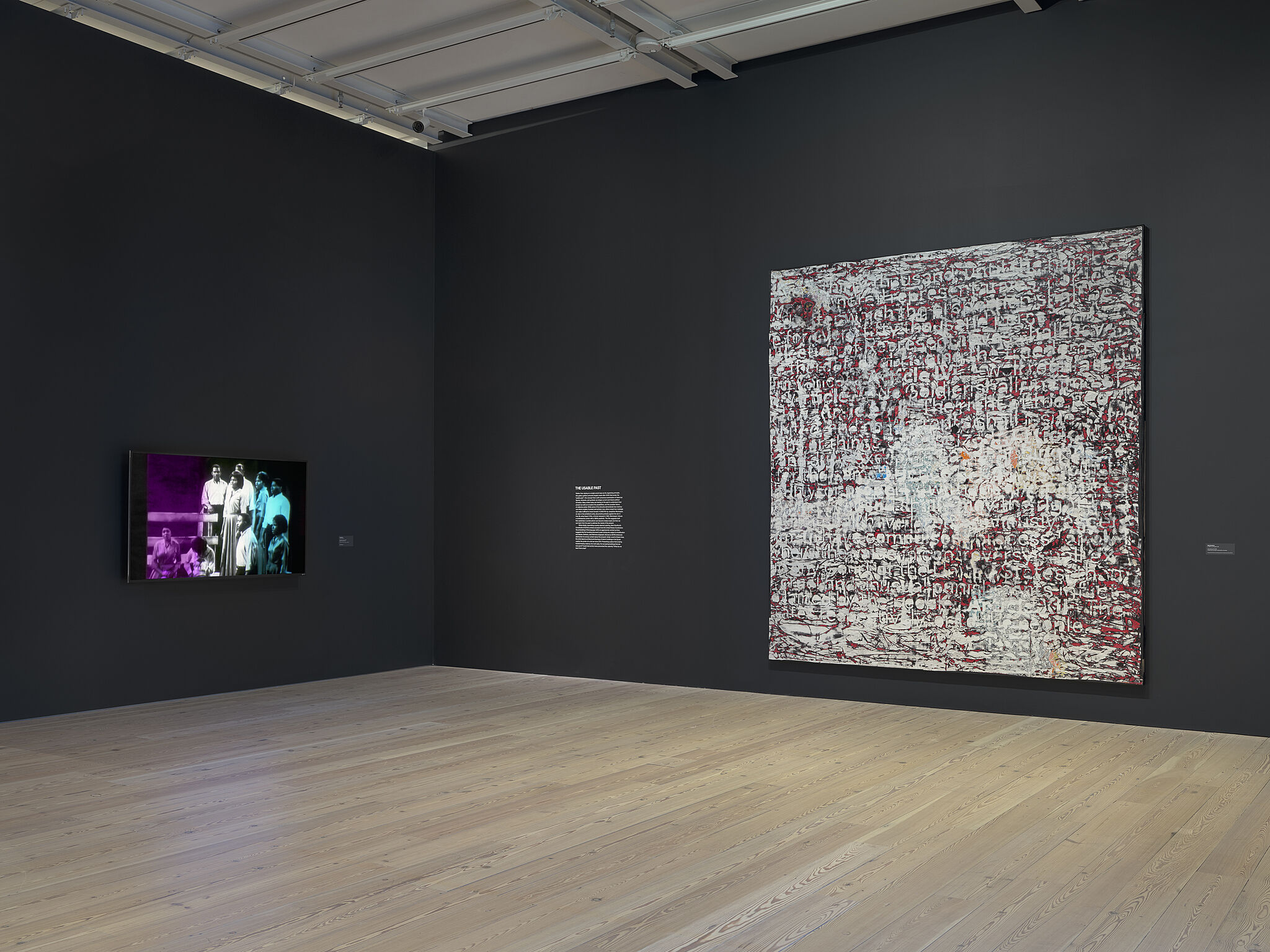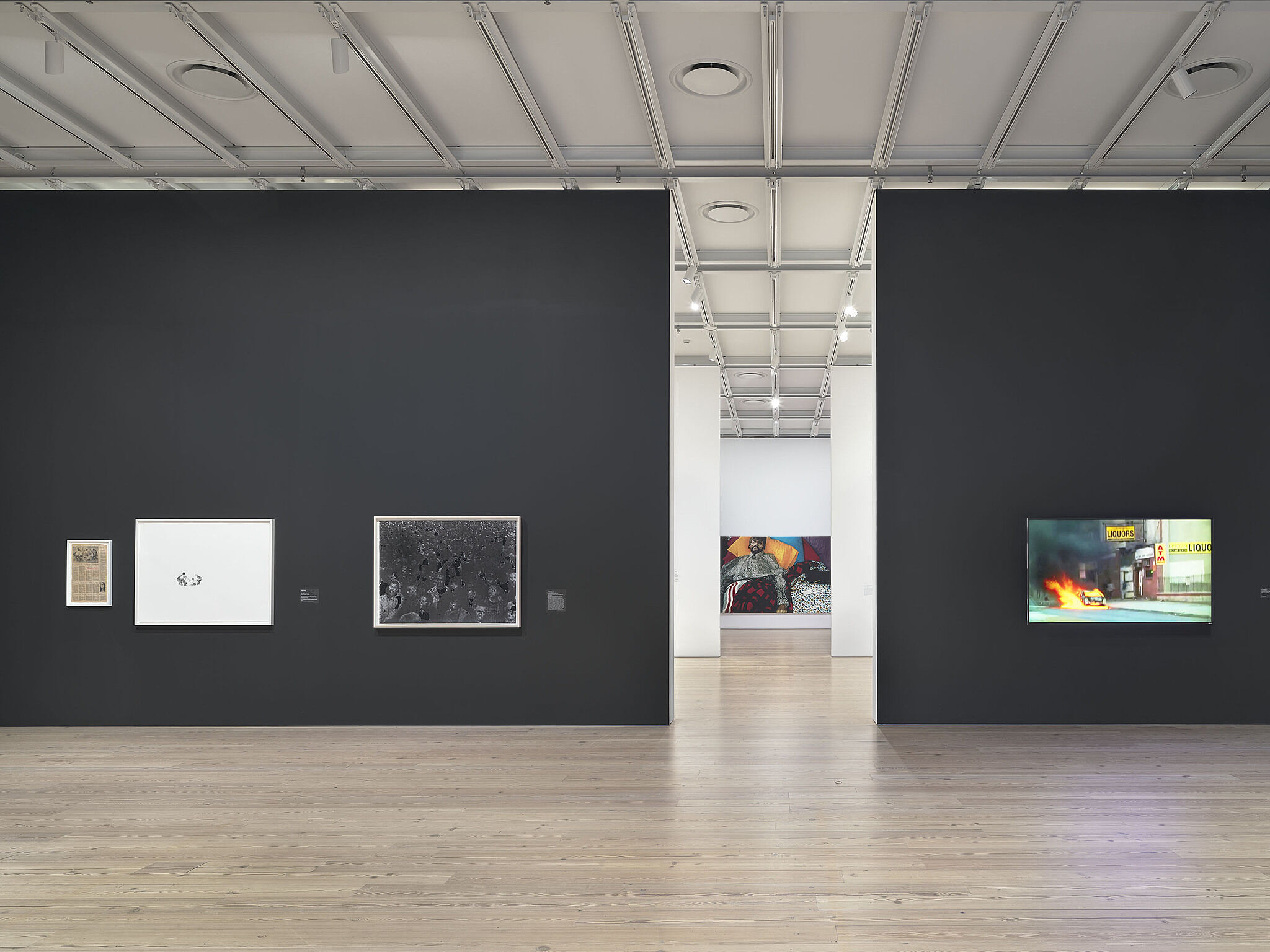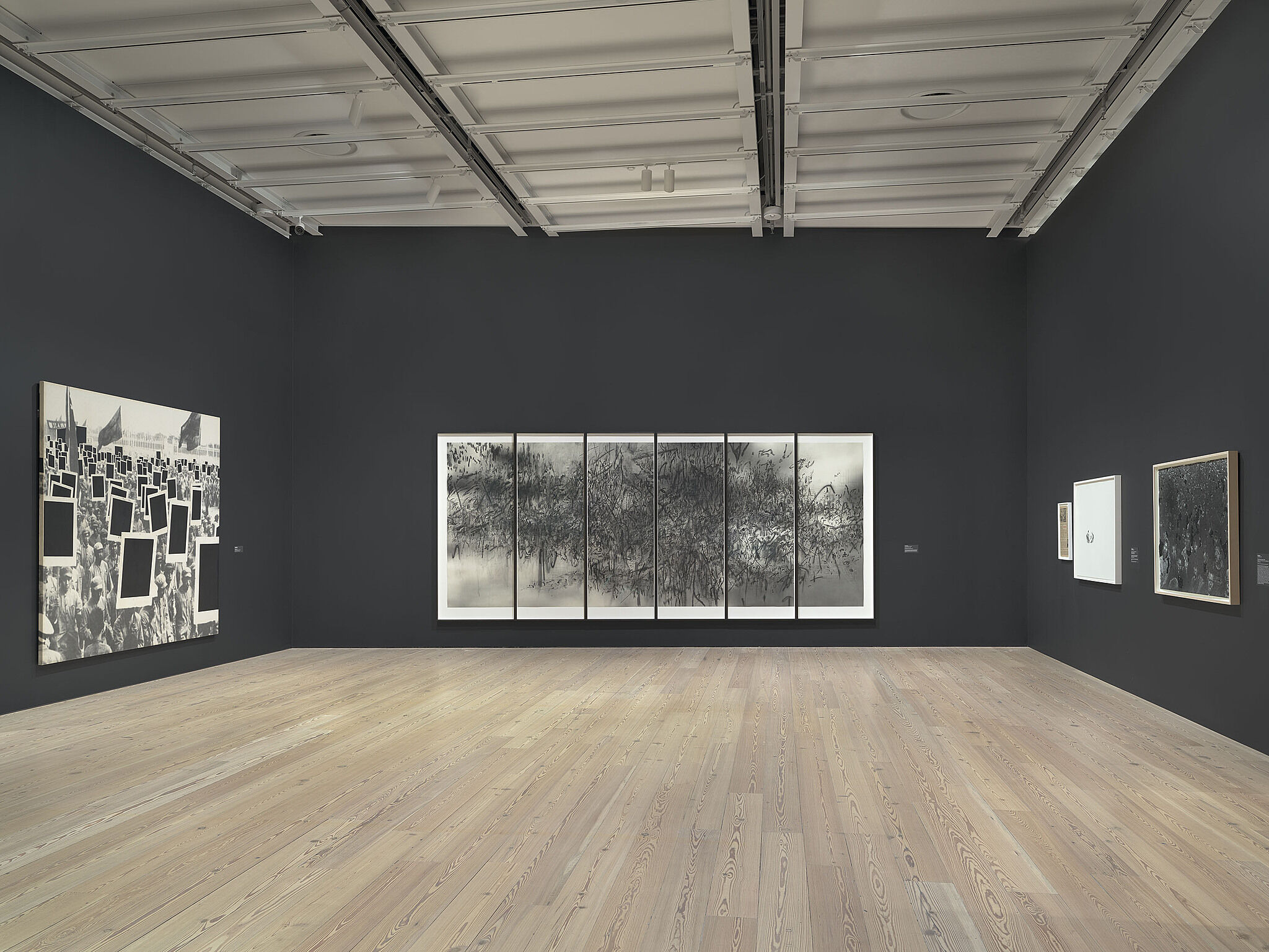An Incomplete History of Protest: Selections from the Whitney’s Collection, 1940–2017 | Art & Artists
Aug 18, 2017–Aug 27, 2018
An Incomplete History of Protest: Selections from the Whitney’s Collection, 1940–2017 | Art & Artists
The Usable Past
8
Rather than relying on a single social issue as its organizing principle, this exhibition gathers artworks largely made after 2000 that evoke the “usable past”—the concept that a self-conscious examination of historical figures, moments, and symbols can shape current and future political formation. Many artists today are looking to the past to understand their present as well as to explore the possibilities, and the possible failure, of collective action. While some of the artworks demonstrate how memory can inform models of protest and activism now, others reveal how nostalgia can make it difficult to move forward. A 2005 film by Josephine Meckseper documents protests against the war in Iraq. By using Super 8 film, a format released in 1965, Meckseper imbues a contemporary action with a 1960s aesthetic. The film suggests both that yesterday’s counterculture can become today’s style and that we can learn from the past to address the needs of the present.
While initially resembling a purely abstract painting, Mark Bradford’s Constitution III (2013) contains excerpts from the United States Constitution. His embedding of this language within an aggressively worked surface suggests that the founding document is also a living one, subject to modification and debate. Similarly, Julie Mehretu’s Epigraph, Damascus (2016) embraces abstraction to convey content about the present. Under a swirl of black lines, the artist depicts architectural drawings of historic buildings in the Syrian capital, the center of a civil war since 2011. Presenting a place that is being transformed by violence, her work asks: Are we seeing buildings that are now gone? Could intervention have prevented this calamity? What do we learn from crisis?
Artists
- John Ahearn
- Emma Amos
- Richard Avedon
- Rudolf Baranik
- Bastian
- Andrea Bowers
- Mark Bradford
- AA Bronson
- Paul Burlin
- Andrew Castrucci
- Paul Chan
- Mel Chin
- Larry Clark
- Clergy and Laymen Concerned
- Sue Coe
- William N. Copley
- william cordova
- Crash
- Greg Daily
- Allan D'Arcangelo
- Bruce Davidson
- Daze
- Richard Deagle
- Jane Dickson
- Louis H. Draper
- Hock E Aye Vi Edgar Heap of Birds
- Melvin Edwards
- England Free Press
- Avram Finkelstein
- Larry Fink
- Hermine Freed
- Vincent Gagliostro
- Ja'Tovia Gary
- Theaster Gates
- General Idea
- Jeffrey Gibson
- John Giorno
- Leon Golub
- Felix Gonzalez-Torres
- Gran Fury
- Nancy Grossman
- Gross National Product
- Group Material
- Guerrilla Girls
- Keith Haring
- Leslie Hewitt
- Charles B. Hinman
- Jenny Holzer
- International Union of Students
- Rashid Johnson
- Mary Kelly
- Edward Kienholz
- Barbara Kruger
- Kiyoshi Kuromiya
- Suzanne Lacy
- Tom Lafferty
- Lambert Studios, Inc.
- Annette Lemieux
- John Lennon
- Glenn Ligon
- Fred Lonidier
- A. Lunsford
- Michael Lynne
- Daniel Joseph Martinez
- Josephine Meckseper
- Julie Mehretu
- Toyo Miyatake
- Mobilization by the Antioch Bookplate Co.
- Donald Moffett
- Frank Moore
- Peter Moore
- Robert Morris
- Napalm Graphics
- National Peace Action Coalition
- Senga Nengudi
- Louise Nevelson
- New Mobilization Committee to End the War in Vietnam
- Northern California Peace Action Coalition
- Yoko Ono
- Gordon Parks
- Dan Patterson
- Don Peterson
- Irving Petlin
- Howardena Pindell
- Carl Pope
- Pro-Arts, Inc.
- Ad Reinhardt
- Marlon Riggs
- Faith Ringgold
- Kay Rosen
- Martha Rosler
- Robert L. Ross
- Santa Monica Moratorium Committee
- Dread Scott
- Brian Shannon
- Gary Simmons
- Leif Skoogfors, 1940-
- Jaune Quick-to-See Smith
- Jack Sonenberg
- SP/4 Vietnam
- Nancy Spero
- Tom Starace
- May Stevens
- Student Mobilization Committee to End the War in Vietnam
- Carol Summers
- the Gallery
- The Union of Vietnamese in the United States
- Tim Rollins and K.O.S.
- Mierle Laderman Ukeles
- United Women’s Contingent
- Unknown artist
- Various artists
- Vietnam Day Committee
- Vietnam Peace Parade Committee
- Vietnam Referendum '70
- Kara Walker
- William Weege
- David Weinrib
- Irving White
- David Wojnarowicz
- Joseph Wolin
- Women Strike for Peace
- Martin Wong
- Adja Yunkers

